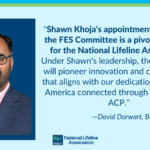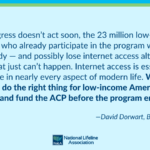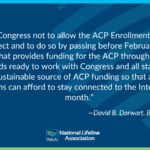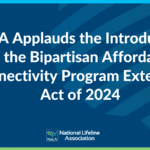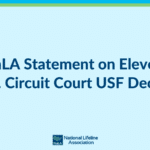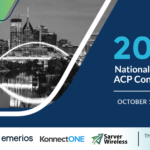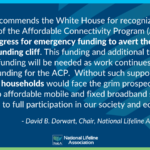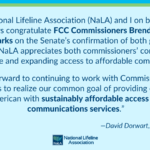KENNETT SQUARE, PA. (PRWEB) JUNE 06, 2019
The National Lifeline Association (NaLA) announced today it has appointed Issa Asad, founder and CEO of Florida-based Q Link Wireless to the organization’s board of directors. NaLA is the only organization focused on advancing the interests of Lifeline recipients, providers, and program advocates. Lifeline, the federally-run program that provides free data and voice service to low-income Americans, is administered by the United Service Administrative Company under the direction of the FCC. In his role as a board member, Mr. Asad will work to ensure the program continues to maintain and expand wireless service to the millions of Americans who rely on Lifeline for their connectivity.
Mr. Asad joins fellow telecommunications industry leaders on the NaLA board for a three-year term. He will work with his fellow board members on a number of urgent matters including the continuing role of mobile virtual network operators (MVNOs) in the Lifeline program; technological enhancements to Lifeline enrollment and eligibility verification; as well as the ongoing need for expanding the nation’s infrastructure to deliver wireless data and voice services.
“The Lifeline program began under President Reagan almost forty years ago,” said Mr. Asad. “However, today, the program faces a whole new set of challenges that pose a threat to the ability for low-income Americans to stay connected to their families, friends, and emergency services. We have much work to do to make sure bureaucracies don’t impede individual American’s need for basic data and voice services.”
Mr. Asad is a seasoned executive with nearly two decades of experience in the telecommunications industry. He began his career in telecom working in prepaid phone services before he founded Q Link Wireless. Today, Q Link ranks as the third-largest Lifeline provider in the nation and serves more than two million customers. The company has been particularly instrumental in expanding Lifeline services to rural Americans through its novel, internet-based sales and marketing approach.
“I am extremely happy that Issa has made the commitment with his time to continue to support the Lifeline industry,” said David B. Dorwart, chairman of the National Lifeline Association. “Having Issa represent the industry as a board member provides the additional credibility our industry wants and needs to make effective long-term change for the customers we support and serve.”
Mr. Asad joins current NaLA Board Members: David B. Dorwart, board chairman & founder of NaLA; Steve Klein, president at SafetyNet Wireless; David Avila, associate vice president at SafeLink Wireless; Kimberly Lehrman, president & chief marketing officer at enTouch Wireless; Ali Badran, chief executive officer at Aiobo and MoreAble; and Nathan Stierwalt, chief sales & marketing officer at PWG Network Solutions.
About the National Lifeline Association (NaLA):
The National Lifeline Association is the only industry trade group specifically focused on the Lifeline segment of telecommunications. We support the four essential components of Lifeline: ETCs & Providers, Distributors, Lifeline Participants & Supporters, and Government & Regulatory Bodies. We are passionate about the continuity and advancement of the Lifeline program and we drive this vision through our mission to “support providers, distributors, participants, and supporters of Lifeline through education, cooperation, and advocacy.”
For more information on NaLA, visit http://www.nalalifeline.org.
About Q Link Wireless:
Q Link Wireless, a Quadrant Holdings Company, is one of the nation’s leading providers of wireless voice and data service through the Lifeline Program. With more than two million customers, Q Link is wirelessly connecting people to the world around them, regardless of their income.
For more information on Q Link Wireless, visit qlinkwireless.com.
The official press release can be reviewed here.




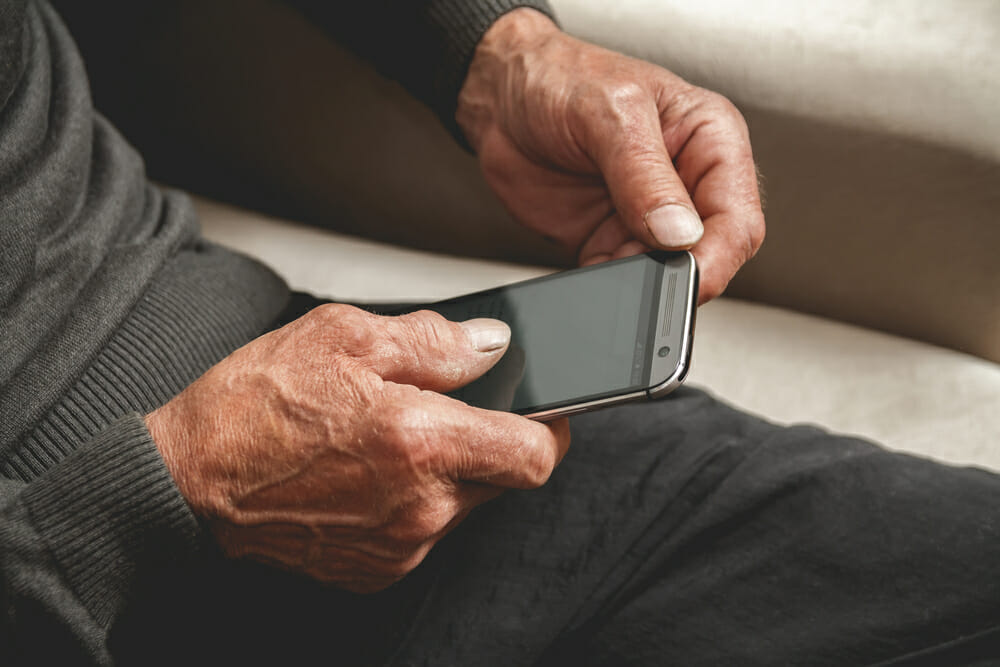



 work and home. Being a family woman and the go-to-person can be overwhelming, but Sarah says that it’s her job as a mother and wife. Her day-to-day routine varies, but the one thing that is consistent is her consumer relationship with the Lifeline program.
work and home. Being a family woman and the go-to-person can be overwhelming, but Sarah says that it’s her job as a mother and wife. Her day-to-day routine varies, but the one thing that is consistent is her consumer relationship with the Lifeline program. 
 Awareness Week helps bring attention to the Lifeline program, the qualifications for enrollment and encourages Lifeline-eligible consumers to enroll.
Awareness Week helps bring attention to the Lifeline program, the qualifications for enrollment and encourages Lifeline-eligible consumers to enroll.
